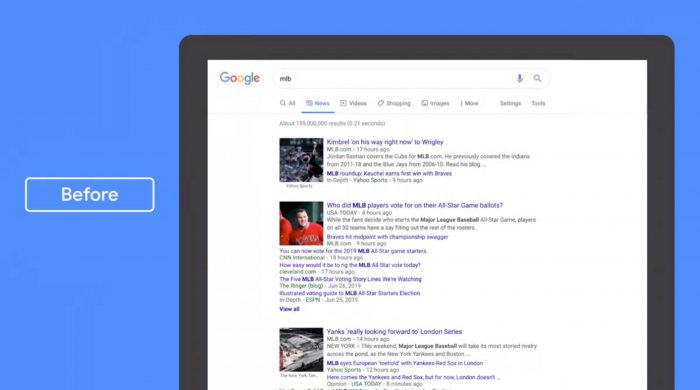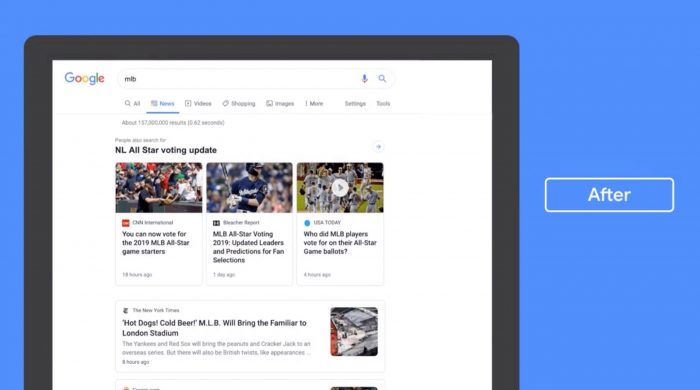In the land of search engines and social media platforms providing more context to the things they show, Google is now tweaking its search results for news articles.
When searching on desktop, users will find — in the News tab — a more prominent display of publishers’ names and specific cards for articles in a carousel, rather than straightforward headlines and links.
Over the next couple weeks we’re rolling out a redesigned News tab in Search on desktop. The refreshed design makes publisher names more prominent and organizes articles more clearly to help you find the news you need. Check it out 👇 pic.twitter.com/xa2aZfO4Qd
— Google News Initiative (@GoogleNewsInit) July 11, 2019
Screenshots for your perusal:


As part of the News tab redesign (which started rolling out recently), you can now see "People also search for" carousels. And you can have multiple carousels as well. https://t.co/uG9dpWFqyy pic.twitter.com/oyuo7nFTyX
— Glenn Gabe (@glenngabe) July 12, 2019
The redesign will roll out over the next few weeks, 9to5Google reported. Abner Li also noted:
However, this redesign comes at the expense of fewer links per page, with related In-Depth or Opinion articles not appearing at the same frequency underneath a story. However, it’s much better for readability and just browsing through results.
Engadget pointed out the News tab’s changes are in line with the main Google News page’s card format or the Google News experience on mobile. “While it’s clear that the new design is a lot less busy than its predecessor, it’ll be harder to get an idea of the breadth of coverage or read related news stories,” Amrita Khalid wrote.
Adding more context to information is rarely a bad thing, and Google is obviously where most people are looking for answers. Facebook’s “i” context button on links, introduced April 2018, has been showing more information about the source of the link from Wikipedia. But of course, it is most helpful when the context you’re adding is accurate, unlike the initial display of additional information on Google-owned YouTube livestreams of the Notre Dame fire…bizarrely connecting it to 9/11.
Leave a comment